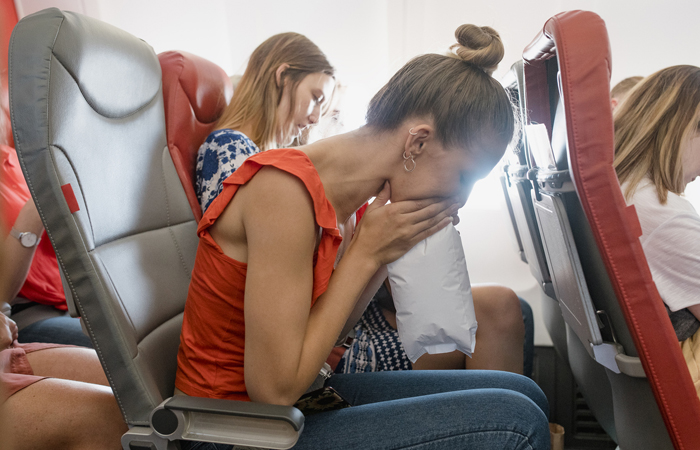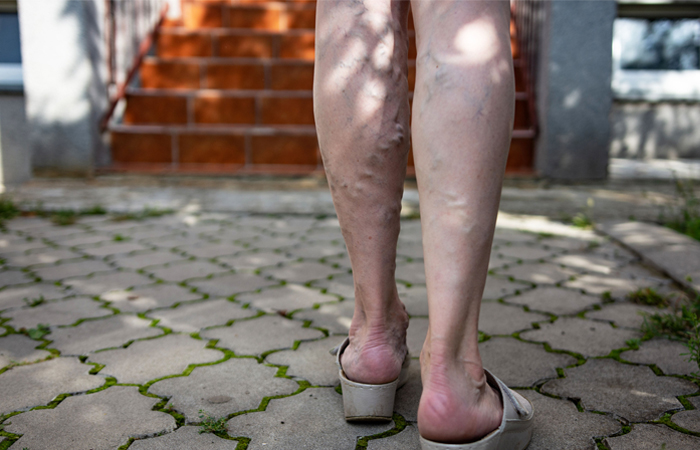Treatment options
Someone going abroad should start thinking about the health aspects of their trip around six weeks before departure. This is because vaccinations and antimalarials, if recommended, need to be given ahead of time for protection to develop.
Travel sickness
If travel sickness strikes, over-the-counter (OTC) travel sickness medicines containing promethazine or cinnarizine can help. Alternatively, customers could try ginger or peppermint products and fresh air, as well as taking a break from travelling.
Preventative measures include sitting at the front of a car or middle of a boat to minimise the mixed messages being sent to the brain; avoiding heavy or spicy foods and alcohol before and during travelling; not reading or using electronic devices and looking straight ahead rather than at moving objects such as passing cars or rolling waves. There are various other products that can be used too, such as patches and acupressure bands.
Sunburn
If a customer has sunburn, they should get out of the sun and cover up, but it is also sensible to cool the skin using a damp towel or in the shower and by applying aftersun products. Ice should not be applied to sunburn.
Dehydration is a real risk and can be averted by drinking plenty of water. Taking painkillers such as ibuprofen and paracetamol can ease any discomfort. Blisters and peeling skin should be left well alone, but someone who is feeling very unwell should seek medical attention.
Deep vein thrombosis
Those with DVT may benefit from wearing compression stockings, which promote good blood flow, but they must be properly fitted by a pharmacist or GP. Other measures that can help reduce the risk of DVT include wearing loose, comfortable clothes, walking around whenever possible, drinking plenty of water, steering clear of alcohol and sedatives, and doing calf exercises every half hour. Flight socks can be purchased to help improve circulation while seated on a flight.
Insect bites and stings
Stings or ticks that are left in the skin should be removed, the area washed and dried and then a cold compress applied for at least 10 minutes with the area elevated, if possible, to reduce swelling. Customers need to be careful when removing tics, using clean, fine-tipped tweezers to avoid any part of the tick being left in the skin. Scratching should be avoided. There are several OTC remedies that can help insect bites and stings, including topical anti-itch treatments, hydrocortisone cream and antihistamine cream and/or tablets. Simple analgesics can be taken to reduce pain if needed. Pharmacy staff should know how and when all of these products can be used, including any restrictions. Medical advice should be sought by anyone who has:
- Been bitten or stung in the mouth or throat or around the eyes
- If a large area is affected
- If symptoms continue for a long time or worsen
- There are signs of a more widespread infection such as fever, swollen glands or feeling generally unwell.
Emergency help may be necessary for customers who have had a severe reaction to an insect bite or string (an anaphylactic reaction), for example, difficulty breathing or swallowing, being sick, a fast heart rate, dizziness or fainting.
Malaria
Malaria is a disease spread by mosquitoes that can be fatal if not diagnosed and treated quickly, so prevention is really important. Chemoprophylaxis – taking medication to try and stop malaria developing if someone is bitten by an infected mosquito – is invaluable when travelling to certain places, but regimens vary, so up-to-date advice should be sought. Teams can refer customers to the pharmacist for antimalarial drugs if they know they are travelling to a risk zone. Bite prevention measures should also be taken, including:
- Covering exposed skin by wearing long sleeves and trousers, particularly at times of the day when insects are more active – commonly at dawn and dusk
- Wearing shoes when outdoors to avoid treading on insects
- Applying insect repellent to exposed skin, ideally a product containing diethyltoluamide (DEET)
- Keeping doors and windows closed and using nets around beds if necessary
- Avoiding strongly perfumed toiletries as these can attract insects.


